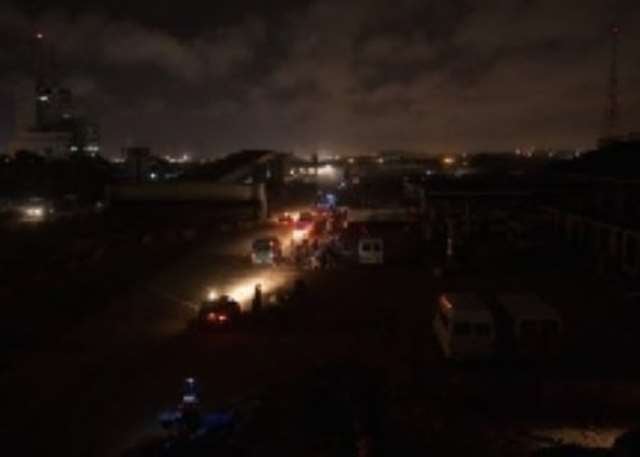Ghana is poised for a nationwide power interruption on Sunday, July 13, 2024, due to essential maintenance work by ENI, the primary gas supplier to the national grid. This temporary shutdown of gas supply is crucial for rehabilitation efforts aimed at boosting gas production to approximately 270 million standard cubic feet per day (MMscf), a significant increase that promises to bolster the long-term stability of Ghana’s energy sector. Energy Minister John Abdulai Jinapor, in announcing the planned outage, emphasized its importance as a necessary step towards strengthening the country’s energy infrastructure and ensuring a more reliable power supply for the future. While acknowledging the inconvenience the interruption will pose, he stressed the long-term benefits that will accrue from this short-term disruption.
The planned maintenance involves a temporary shutdown of ENI’s gas supply, a critical component in Ghana’s power generation. This temporary halt is essential to facilitate the necessary upgrades and repairs that will ultimately enhance gas production and contribute to a more robust and reliable energy system. The increased gas output, projected to reach 270 MMscf, represents a substantial boost to Ghana’s energy capacity and will play a vital role in mitigating future power challenges. The minister’s announcement, made during the groundbreaking ceremony for the Anwomaso to Kumasi transmission line reconstruction, underscored the government’s commitment to investing in critical infrastructure projects that support the country’s long-term energy goals.
A key decision impacting the management of this planned outage involves the choice to forego switching thermal plants to liquid fuel during the gas shutdown. This decision, based on expert advice from engineers, stems from the potential technical complexities and risks associated with such a transition, especially considering the relatively short duration of the gas interruption, estimated to be between four and six hours. The process of switching to liquid fuel and then back to gas involves significant logistical challenges, including changing nozzles and other technical adjustments, which could introduce further complications and potentially prolong the power outage. The Ministry, prioritizing long-term stability and minimizing potential risks, has opted to manage the temporary interruption without resorting to liquid fuel as a stopgap measure.
The Ministry of Energy and Green Transition, under the leadership of Mr. Jinapor, is actively engaged in mitigating the impact of this planned power interruption. Working in close collaboration with relevant stakeholders, the Ministry is implementing strategies to minimize disruption and ensure a smooth transition during the outage period. This proactive approach reflects the government’s commitment to transparency and responsible management of the energy sector, ensuring that essential services are impacted as minimally as possible. The broader implication of this scheduled maintenance aligns with the overarching goal of securing Ghana’s energy future, creating a more robust and resilient power infrastructure capable of meeting the country’s growing energy demands.
Beyond the planned maintenance and its associated temporary power interruption, the Minister also shared positive developments within Ghana’s energy sector. He announced a significant new oil discovery by ENI, further bolstering the nation’s energy resources and potential for future growth. Adding to this positive momentum, Tullow Oil, a prominent player in the oil and gas industry, has reaffirmed its commitment to investing in Ghana’s upstream petroleum sector, signaling growing investor confidence in the country’s energy landscape. These developments underscore the positive trajectory of Ghana’s energy sector, attracting investment and strengthening the country’s position as a key player in the region’s energy market.
The reconstruction of the Anwomaso to Kumasi transmission line, a project jointly funded by the European Union and the Government of France, marks another significant investment in Ghana’s energy infrastructure. This crucial upgrade is expected to dramatically improve power reliability in the Kumasi region, a major industrial and commercial hub, and extend its benefits to surrounding mining communities such as Dunkwa. By reducing voltage fluctuations and enhancing the stability of the power supply, this project will not only improve the quality of life for residents but also contribute to the economic development of the region, supporting businesses and creating opportunities for growth. This collaborative effort highlights the importance of international partnerships in driving sustainable development and building a more resilient energy future for Ghana.


